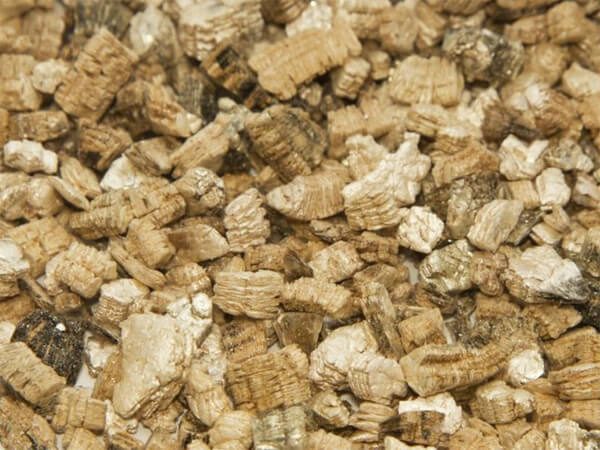Vermiculite

Vermiculite is naturally occurring minerals with characteristic color that range from dark gray to sandy brown exist as flakes upon processing which ideally is composed of magnesium iron aluminum silicate.
In its natural state vermiculite looks brownish and resembles mica and usually expands rapidly when subjected to heat. The expansion occurs when water residues beneath its layers transform into steam causing it to expand.
Some of the regions in the world where the mineral is mined through open-pit and open-cast mining include, Russia, Uganda, Australia, Zimbabwe, Brazil, South Africa, and USA.
Vermiculite Properties
Some of the properties of vermiculate that make it so much useful include; heat resistance, ability to compress, low density, and inert chemical nature. It is thus used in friction material such as car brake linings and in construction where it is a major component of fire doors and insulation.
It is also used as an addition to soil since it helps retain moisture and also improves soil aeration. It is also used in heat and fire resistant coating material in various industries.
Vermiculite Applications in Horticulture
You will come across the term horticultural vermiculite which simply refers to this mineral when in use in horticulture. It helps improve soil aeration and also retains moisture and nutrients. This helps create the necessary conditions for plant roots, cuttings, and seeds to grow and thrive. In its form, vermiculite is food safe since it is non-toxic and is also clean, sterile and unchangeable. This means it will never transform into other harmful forms when used in horticulture.
Vermiculite is usually mixed with natural soils, peat, organic compost, fertilizers and composted bark. It easily mixes with these substances since it is light and easy to handle. Once mixed, the substances will help retain moisture and nutrients. These will be slowly released as and when required by the plants. It also helps facilitate faster growth of plant roots and provide anchorage to the roots as they develop.

When it comes to water drainage in the soil, vermiculite plays an important role. It not only allows excessive water to drain away but also help hold required amount of water as a sponge. This is held until the soil begins to dry out and the water is released. It therefore ensures the required moisture is provided to plants. It is thus best suited for plants that require high moisture levels.
When it comes to nutrients, vermiculite is rich in calcium, magnesium and potassium. These nutrients are natural transmitted to the plants due the natural reaction between the mineral and the soil. It is also worth mentioning that vermiculite does not wear out as compost but rather remains unchanged. It offers a permanent solution for soils where one would like to improve drainage. It also helps enrich the soil with vital nutrients and this occurs through a natural process hence it is food safe also.

Chemical Composition of Vermiculite
- Silica (34-46%)
- Aluminum oxide (10-16%)
- Potassium oxide (1-6%)
- Iron oxide (6-13%)
- Magnesium oxide (16-35%)
- Calcium oxide (1-5%)
- Water (8-16%)


